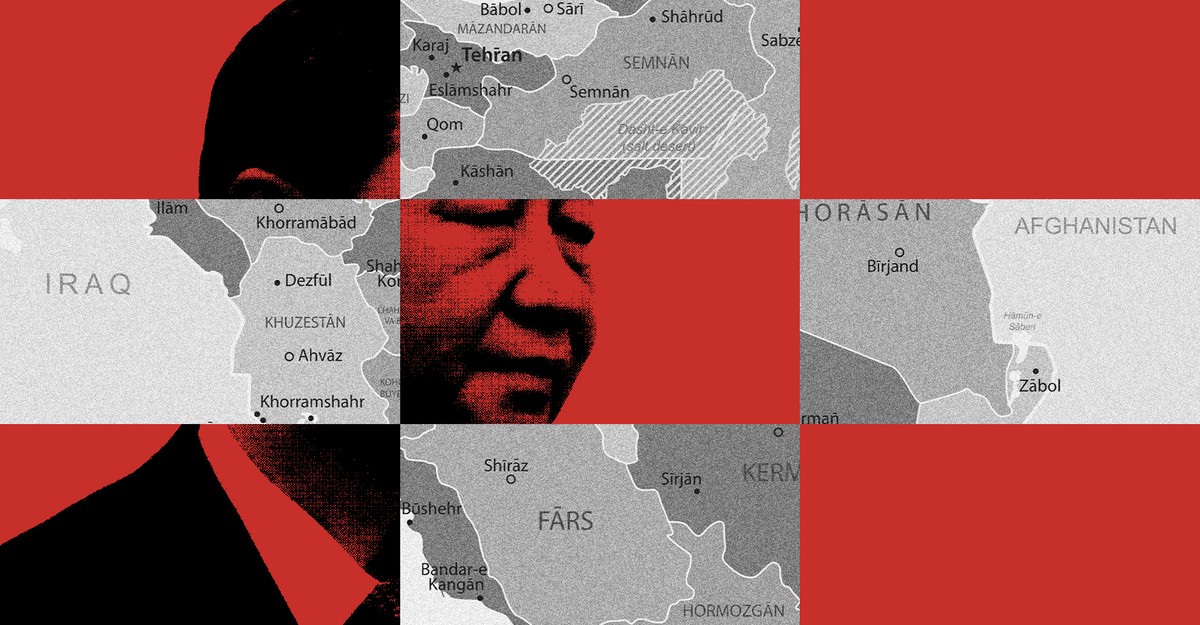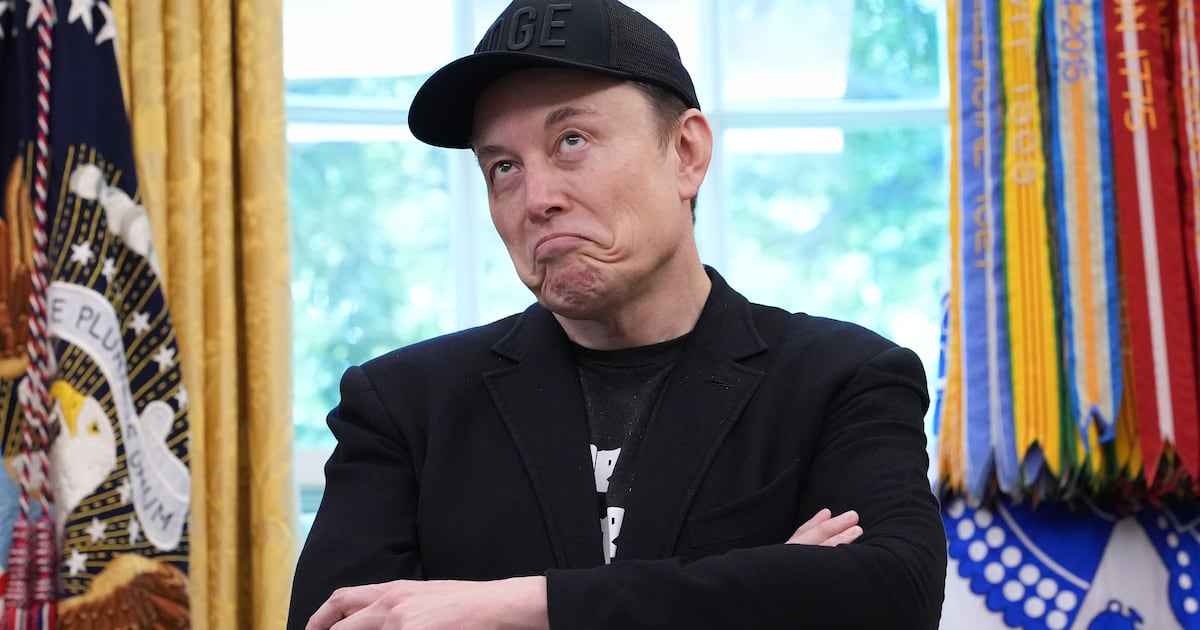China isn’t ready to be the world’s next superpower: That’s one thing the exchange of fire between Israel and Iran in June made abundantly clear.
The country that was perhaps Tehran’s most important diplomatic and economic partner wound up playing virtually no role when Iran and Israel came to blows. This, despite the fact that Beijing has actively sought stronger relations with many countries in the Middle East—not just Iran, but also Saudi Arabia and the United Arab Emirates—and despite China’s evident stake in promoting stability in a region that supplies more than half of its oil imports.
So why didn’t China step up?
Beijing did make some effort to assert its influence. In mid-June, Chinese leader Xi Jinping proposed a four-point plan, calling for a cease-fire and negotiations to contend with Iran’s nuclear program, and offering to play a “constructive role” in restoring peace. But Xi’s proposal went nowhere. He couldn’t bring the belligerents to the table—especially not Israel.
The two countries have never been particularly close, and Beijing deeply offended the Israeli leadership by taking a pro-Hamas position after the group’s October 7, 2023, terror attack on Israeli civilians. But amid Israel’s recent military successes, Beijing has tried to soften its approach. Chinese Foreign Minister Wang Yi has opened a dialogue with his Israeli counterparts and in a phone call in October stated that China “is ready to resume exchanges in all aspects as soon as possible,” according to an official summary of his comments.
But Israel’s leaders are likely to remain cautious, given China’s relationship with Tehran. In the recent past, Beijing has helped the Iranians circumvent Washington-led sanctions and diplomatic pressure. Alongside Russia and India, China has welcomed Iran into two important forums: the BRICS group of emerging economies and the Shanghai Cooperation Organization, an association of countries connected to Central Asia. And China purchases nearly all of Iran’s oil exports, providing vital resources to its moribund economy.
Given these links, Chinese leaders might be expected to wield influence over Tehran. They’ve done so in the past: In 2015, China encouraged Iran’s leadership to join the Obama administration’s nuclear deal, and in 2023, it brokered a détente between Tehran and its regional rival, Saudi Arabia. But if China and Iran are too close for Israel’s comfort, they are still not as close as they appear to be.
Iran certainly has reason to question whether China is fully committed to the relationship. In 2021, China promised to invest $400 billion in Iran over 25 years as part of an enhanced strategic partnership, but progress toward that goal has been slow. Chinese cumulative direct investment in Iran reached only $3.9 billion at the end of 2023. And Chinese companies have been wary of doing business with Iran due to U.S. sanctions—a risk made clear when Meng Wanzhou, now deputy chair of the telecom giant Huawei, was detained in Canada in 2018 at Washington’s request on sanctions-related charges. China also takes advantage of Iran’s vulnerability by purchasing its oil at steep discounts. As a result, Tehran has tried to balance Chinese influence by maintaining strong ties to India, Beijing’s chief rival within the developing world.
The Iranians also undoubtedly know that China can’t ultimately protect them from the United States and Israel. Trade with China cannot fully substitute for real relief from Western sanctions. Beijing isn’t likely to pressure Washington into lifting them, either. And although China has been steadily upgrading its armed forces, it still can’t project military power all the way to the Middle East. Beijing probably wouldn’t want to do so anyway: It tends to eschew the sorts of close alliances and mutual-defense arrangements that Washington routinely forges with other governments. “China is not trying to be the security provider in the Middle East, and honestly, no one has asked China to,” Yun Sun, a senior fellow at the Stimson Center who specializes in Chinese foreign policy, told me.
Beijing’s response to the Israel-Iran conflict reflected all of these limitations. Foreign Minister Wang Yi has offered his Iranian counterpart little beyond diplomatic support. “As a security partner, China is not there” for Iran, Mohammed Baharoon, the director general of the Dubai Public Policy Research Center, told me. “If we are talking about a security situation, like the war, Russia has a closer relationship with Iran than China.”
For many in the Middle East, China’s standoffishness doesn’t seem like the worst thing: Beijing isn’t doing anything to escalate the Israel-Iran conflict, either. But then, China is also in no position to challenge or provide a counterweight to the United States in the region. The Gulf states have cultivated ever more trade and investment with China—but they still crave close diplomatic and economic relations with Washington above all. President Donald Trump’s May visit, during which the Gulf royals lavishly feted him,“is proof that the U.S. is the most important partner for these countries,” Jonathan Fulton, a senior fellow at the Atlantic Council who monitors Chinese policy in the Middle East from Abu Dhabi, told me. Within the region, China is not seen as “leading political, strategic, diplomatic, and economic issues. Right now, there is really only one country that does all of that, and that’s the U.S.”
The same is true on a global scale. Xi attempted to mediate between Russia and Ukraine, and to promote his own peace proposal, after Moscow’s invasion in 2022. But his all-too-obvious favor for Russia undercut his credibility as a broker. Efforts to intervene in the war between Israel and Hamas in Gaza in 2023 fell flat due to Beijing’s overt pro-Palestinian bias. Wang Yi repeatedly called for a cease-fire, but the U.S. engaged in the consistent diplomacy that eventually produced one. In both cases, Xi exploited the crises to further Chinese interests—deepening ties to a desperate and isolated Russian President Vladimir Putin, and scoring propaganda points in the global South by criticizing Washington’s support for Israel.
China’s actions in these crises are indicative of its true role in global affairs. The so-called axis of authoritarianism—China, Russia, Iran, and North Korea—is not a tightly coordinated cabal. And China’s economic heft is not translating into political and military power as quickly as it could be. Chinese leaders just haven’t marshaled the diplomatic and military muscle—still less the political will—to usurp America’s position as the world’s premier power. To get there, Chinese leaders will need not just more resources and experience, but also a new vision for their role in the world.


